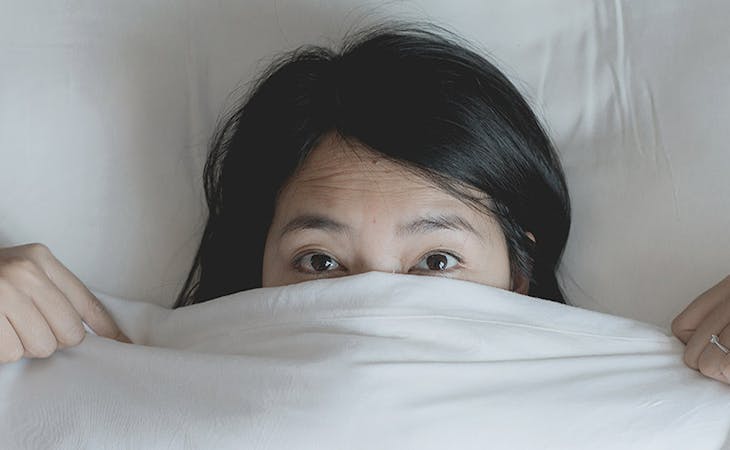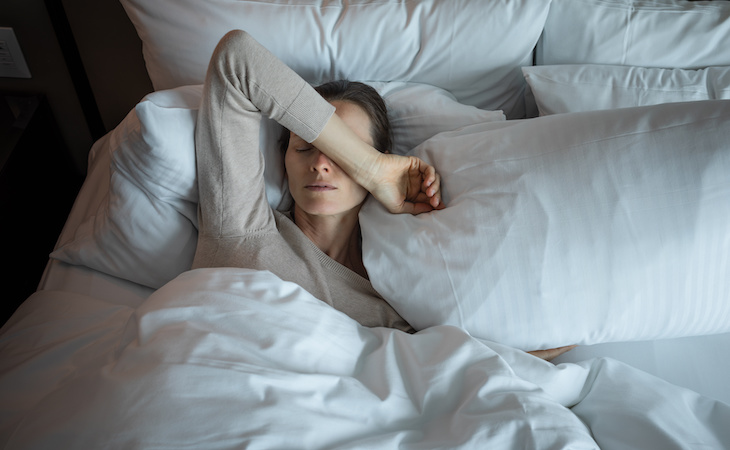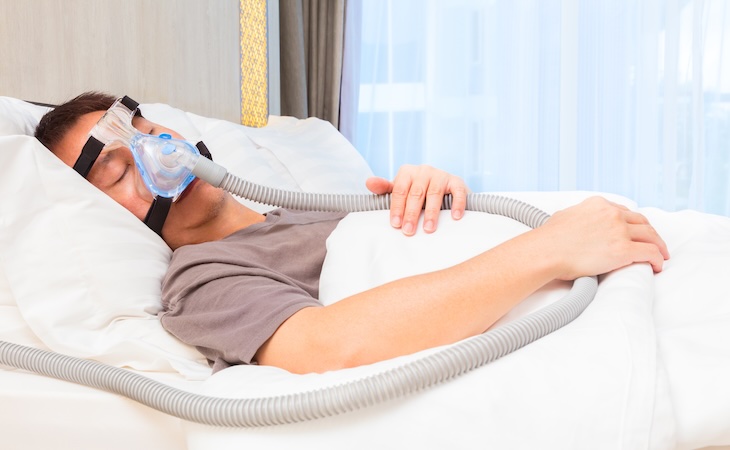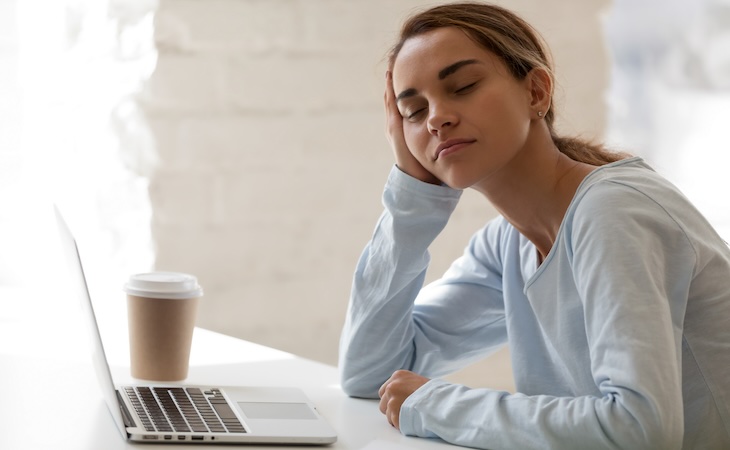No matter how hard you try or how tired you are, sleep doesn’t always come easy. That’s especially true for one segment of the population in particular: women.
Research and medical experts alike find that women suffer from many sleep issues, such as insomnia and overall poor sleep quality, at higher rates than men. What’s more, they tend to under-report serious issues like snoring when they do experience them. Studies also suggest that women are more affected than men by a single poor night of sleep.
Here, four common obstacles that might be standing in between women and a healthy night’s sleep, plus how to overcome them so you can rest soundly—and finally have the energized, successful days you’re craving.
Falling asleep
Sleep latency—the amount of time it takes to fall asleep—tends to be longer in women than in men, research finds. This could have to do with everything from hormones to higher rates of insomnia (more on that later) in women. But women also face unique obstacles that stand in the way of sufficient sleep.
“Too many people, especially women, see the need for sleep as a character weakness,” says Terry Cralle, RN, certified clinical sleep educator. “They think you can power through sleep deprivation or acclimate to it—and neither is possible.” It’s best to view sleep as a biological need much like food or water, she says, adding, “sleep health is a ‘vital sign.'”
What to do: If you’re having a hard time falling asleep, start by eliminating all tech in the bedroom. “Don’t trade sleep time for TV or computer time—it is simply not worth it,” says Cralle. Not only can the blue light from your devices have a negative impact on the release of the sleep hormone melatonin, but games, shows, and news can be stimulating for the brain (the opposite of what you need right before bed). If you have small children, rethink your “me” time too. It’s OK to use your time for yourself as sleep time, says Cralle. “It’s time well spent.” (Here’s how endometriosis affects sleep.)
Insomnia
Insomnia is one of the most commonly reported sleep problems out there—especially for women. One in four women has at least some symptoms of the condition, such as trouble falling asleep, staying asleep, or both, according to the U.S. Department of Health and Human Services’ Office on Women’s Health. Insomnia could be more common in females due to hormonal changes and “secondary problems” such as depression, anxiety, and issues like fibromyalgia (all more common in women than men) which can make falling and staying asleep more difficult.
What to do: If you think you’re suffering from insomnia (defined as the inability to fall or stay asleep), lifestyle changes, medications, and cognitive behavioral therapy (CBT) can help alleviate symptoms. It’s best to connect with a sleep specialist to find out the best course of action for you. To start, though, if you lie down and can’t fall asleep after about 15 minutes, get out of bed and do something relaxing—read a book or sit quietly on the couch—until you do feel sleepy. You want to keep the bedroom associated with an environment for sleep (read: not a place where you aren’t able to sleep). Sticking to as regular a sleep schedule as possible with set wakeup and bedtimes is also crucial to keeping symptoms at bay. (Here’s how birth control affects your sleep.)
Obstructive sleep apnea (OSA)
“While men are more likely to suffer from sleep apnea, especially those who struggle with obesity or diabetes, women may be more likely to remain undiagnosed due to the social stigma that forces people to feel embarrassed about the most common sign of sleep apnea: snoring,” says Jeffrey Durmer, MD, PhD, co-founder of corporate sleep wellness company FusionHealth. By some counts, about 90% of women with sleep apnea are undiagnosed.
If you have OSA, you might wake up abruptly (the result of not getting enough air) or snore. Since it’s hard to self-identify, your partner might be the one to point things out, notes Durmer.
What to do: If you think you have sleep apnea, your doctor might have you do a sleep test. “If diagnosed with OSA, there are treatment options such as a Continuous Positive Airway Pressure (CPAP) device,” says Durmer. CPAP, which keeps your airways open by delivering pressurized air while you sleep, “is the gold standard for OSA treatment,” he says. “In fact, it’s one of the most effective medical treatments ever devised.” Consistent use of CPAP therapy not only prevents fatigue and sleeplessness, but it also allows your body to naturally reverse the damage caused by chronic sleep deprivation, including plaque buildup in the arteries, Durmer says.
Sleep deprivation-related hunger
“Poor sleep can be a cause of excess body fat since sleep deprivation disrupts appetite-controlling hormones, insulin management, and blood sugar levels,” says Durmer. For women in particular? Fluctuating through a monthly hormone cycle and sleep irregularities can further alter the “hunger hormones” ghrelin and leptin, he says, increasing food cravings and altering how full you feel after you eat.
What to do: Aim for seven to nine hours of sleep each night to help regulate your hunger hormones, suggests Durmer. Eating regularly spaced meals and avoiding heavy foods three hours before bedtime will also help.
Do you experience heartburn before bed? Here’s how to keep acid reflux from ruining your sleep.




